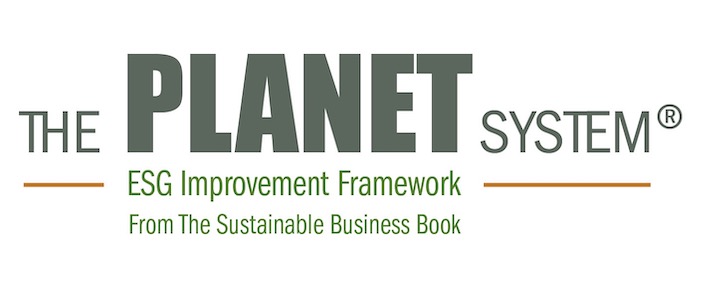 All We Can Save – Johnson & Wilkinson
All We Can Save – Johnson & Wilkinson
The one-sentence summary: We already have the solutions we need to solve the climate crisis, so we don’t need to wait for new technologies or practices – we just need to get on with it.
WHAT THE BOOK SAYS
- This is a collection of around 60 articles and poems subtitled Truth, Courage and Solutions for the Climate Crisis. It is written by women, with a main focus on the USA, which the authors say has caused the majority of environmental damage and is dominated by white men – the so-called empowered ‘deciders’ of the climate crisis.
- The climate crisis is not gender neutral. It is a powerful threat multiplier, making existing injustices worse. Especially under conditions of poverty, women and girls face greater risk of displacement or death from extreme weather disasters.
- The climate crisis is a leadership crisis. For far too long, far too many leaders have been focused on profit, power, and prestige, and many of those committed to change have been ineffective. The result is social, political and economic systems that are wildly skewed to benefit those who already have so much.
- The problem of the climate crisis is also a failure of language, and mainstream journalism has failed to meet the challenge. Citizens simply haven’t had the quality nor the quantity of information they need to respond adequately to the problem. We must build a cultural strategy for the climate movement.
- The book has eight parts:
-
- Root: a place to ground, the foundation of Indigenous wisdom, interconnection
- Advocate: strategy, participation, public good, legislation, holding people to account
- Reframe: language, creativity, culture, means of making sense, flip & rekindle
- Reshape: problems of cities, transport, infrastructure, capitalism
- Persist: this is hard work, the fire of activism, not doing it alone
- Feel: awake, aware, attuned, struggling, mourning, raging, healing
- Nourish: soil, food, water, sky – inseparable; collaborating with nature
- Rise: generations, growing, giving, gathering, a future that holds all of us
- Everything is connected and everything is complicated. We don’t know everything, but we don’t know nothing either.
- People aren’t wired to stop slow-moving disasters, but lazy fatalism is useless. The USA is uniquely positioned to address the crisis, but instead the response is climate denial, political apathy and disengagement driven by White privilege. What do we owe to the powerful who lied for decades?
- The plain truth is that capitalism needs to evolve if humanity is going to survive. The challenge of climate change is perhaps best defined as our challenge to end destructive capitalism, by questioning the underlying rules and tools that direct the behaviour of capitalism.
- Fossil fuel execs are like shitty parents who always choose their own convenience and then expect everyone else to accommodate their asshole kid.
- The active agents of the destruction of natural systems are often invisible, so we need to visualize the invisible, and foster ecosystems as infrastructure.
- Ecoanxiety, sometimes called climate grief, is now a recognized psychological phenomenon with similarities to PTSD, including any combination of worry about the future, direct worries about personal circumstances, an overwhelming sense of loss of natural landscapes that no longer exist, and much more. In the nineteenth century, the philosopher Albrecht studied people’s loss of sense of belonging to a place that no longer existed. He called it sostalgia, a combination of abandonment, loneliness and nostalgia.
- The current system depends entirely on our disengagement from one another. Imagine if even 10% of the USA started engaging deeply, even just one day a week. We already have most of the solutions we need. We don’t need to wait for new technologies or practices, we just need to get on with it – removing barriers to solutions, accelerating their implementation, and expanding their reach, while actively stopping the source of the crisis (fossil fuels, subsidies, and destruction of ecosystems).
WHAT’S GOOD ABOUT IT
- This is the work of our lifetimes. You don’t have to know the details of the science to be part of the solution, and if you wait until you know everything, it will be too late for you to do anything.
- Some interesting statistics:
- Indigenous peoples comprise only 5% of the global population, their lands hold 80% of the world’s biodiversity, and 40-50% of the remaining protected places in the world, whilst creating the least greenhouse gases and having the largest carbon stores.
- Since governments and scientists started officially meeting to discuss lowering greenhouse gas emissions to avoid climate breakdown in 1988, carbon dioxide emissions have increased by 40%, and continue to rise.
- The sea level in Miami has risen ten inches since 1900. It will rise somewhere between 14 and 34 inches above 1992 levels by 2060. By 2100 it could be 6 feet. By 2030 there will 45 days a year of sunny day flooding (that’s flooding, but with no rainfall).
- In the USA, 40% of energy goes to buildings – to heat, cool, light, cook and power – and most of it from fossil fuels.
- Already over 3 million Americans work in the clean energy industry, outnumbering fossil fuel workers by 3 to 1.
- Just one hour in nature has been proven to improve our memory and attention by 20%.
WHAT YOU HAVE TO WATCH
- Not much. This is a well curated series of wide-ranging provocations, but, perhaps unsurprisingly, don’t expect one consistent line of argument.





Leave A Comment
You must be logged in to post a comment.